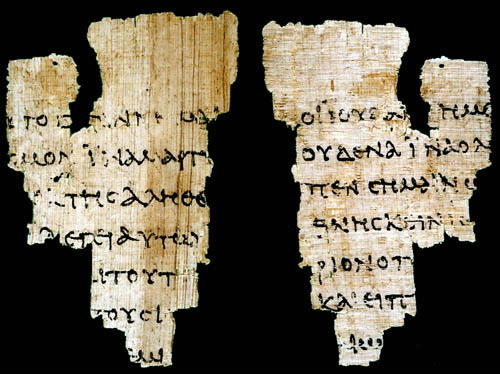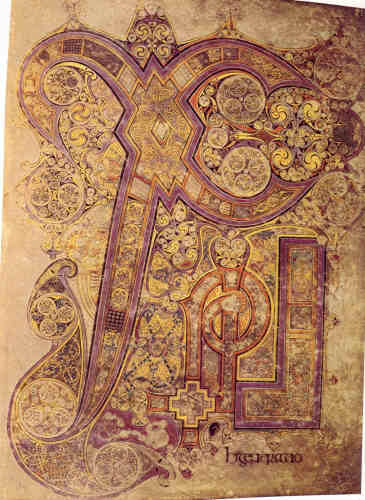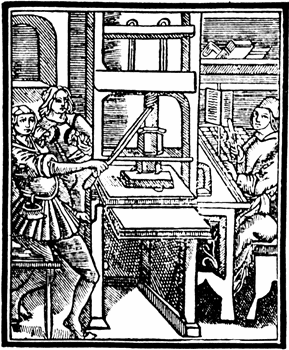Is the Bible the Word of God?
If a book claims to be a revelation from God, surely there will be certain characteristics peculiar to that book, which will set it apart from all others. For instance, it would be accurate in all that it states; historically, geographically and scientifically. It would also make predictions about the future that could not be known through natural means. The messengers would be unique in history; and the proof of their message (miracles) would be confirmation of their authenticity. These characteristics would distinguish the Bible – God’s only book – from all other books in such a way that it could not be counterfeited.
The writers of the Bible claimed to speak God’s words. The Bible prophet was someone who was to say exactly what God told him to say, no more and no less. Jeremiah was commanded: “This is what the LORD says: Stand in the courtyard of the LORD’S house and speak to all the people.... Tell them everything I command you; do not omit a word” (Jer.26:2). The prophet was to speak “everything the LORD had said” (Exodus 4:30). Throughout the Scriptures, the authors, whether they were called a prophet or not, claimed to be under the direction of the Holy Spirit: “Prophecy never had its origin in the will of man, but men spoke from God as they were carried along by the Holy Spirit” (2 Peter 1:21; see also 2 Samuel 23:2; Matthew 22:43 & 2 Timothy 3:16).
These Biblical writers were men of integrity, which lends support to the credibility of their claim of having been inspired by God. They taught the highest standard of ethics, including the obligation to always tell the truth (Ephesians 4:25; Exodus 20:16; Psalm 15:2; Revelation 22:15). These writers paid a high price for their truthfulness. Imprisonment and death were hallmarks of early Christian conviction (Acts 5 & 28; 2 Timothy 4:6-8; 2 Peter 1:14; Revelation 2:10). People sometimes die for what they believe to be true and is not. But few are willing to die for what they know to be false. Yet the biblical witnesses died for the truth they proclaimed, believing that their message had come from God. While not being proof, such evidence is an indication that the Bible is what the biblical writers claimed it to be – the Word of God.
The Bible is amazing in its unity amid its vast diversity. Even though the it was composed by over 40 different writers, over a period of 1500 years, in 3 different languages, and covers hundreds of different topics, nevertheless it manifests a unity that would indicate there was One Mind behind its writing. It is a continuous unfolding drama of redemption from first page to last, from the creation of all things to the consummation of all things. From beginning to end the Bible has one unified message: humanity’s problem is sin (Genesis 6:5; Romans 3:23), and the solution is salvation through Jesus Christ (Luke 19:10; Mark 16:16).
Let us note several unique features about Biblical prophecies, in contrast to all other examples of attempted predictions today. First, unlike the predictions of other religious writings, many of these prophecies were very specific. For example, they gave the very name of the tribe, city, and time of Christ’s birth. Second, none of these predictions failed. Third, since these prophecies were written hundreds of years before Christ was born, no one could have been simply making intelligent guesses. Fourth, many of these predictions were beyond human ability to force a fulfilment. For example, as a mere human being, Christ had no control over when, where, or how He would be born, how He would die (considering others were responsible for His death), or whether He would rise from the dead. The best explanation for the fulfilment of such predictions made hundreds of years earlier is the existence of a transcendent God who knows all things, including “the end from the beginning” (Isaiah 46:10).
These bible prophets claimed to receive their message from God. Of course, as even the Bible admits, there are false prophets (Matthew 7:15; 1 John 4:1). One of the sure ways a true prophet can be distinguished from a false one is by miracles (Acts 2:22; Hebrews 2:3-4). A miracle is an act of God, and God would not supernaturally confirm a false prophet to be a true one.
But of all the world’s religious leaders, only the Bible prophets and apostles were supernaturally confirmed by genuine miracles of nature that could not possibly have been trickery. When Moses was called of God, he was given miracles to prove that he spoke for God (Ex.4:1f). Paul wrote that “signs, wonders and miracles” were marks “of a true apostle” (2 Corinthians 12:12). Luke writes that the “apostles performed many miraculous signs and wonders among the people” (Acts 5:12; & Hebrews 2:3-4).
Moreover, miracles were a hallmark of Jesus’ ministry (Luke 7:20-22). Nicodemus acknowledged to Jesus, “Rabbi, we know you are a teacher who has come from God. For no one could perform the miraculous signs you are doing if God were not with him” (John 3:2). Jesus turned water into wine (John 2), walked on water (John 6), immediately cured one who had been born blind (John 9), and raised the dead (John 11). Peter said, “Jesus of Nazareth was a man accredited by God to you by miracles, wonders, and signs” (Acts 2:22).
The Bible claims to be the Word of God, it is historically accurate, its authors were trustworthy, it is unified amidst an amazing diversity. The Bible made accurate predictions that were fulfilled hundreds of years later, its message is unique, and its messengers were confirmed by miracles. There is no other book like the Bible!


